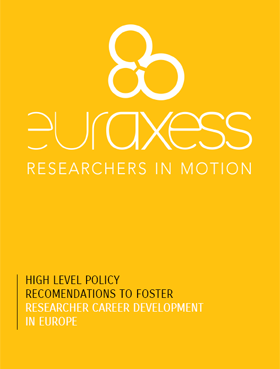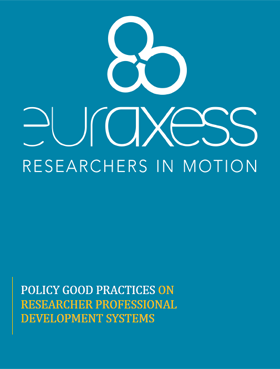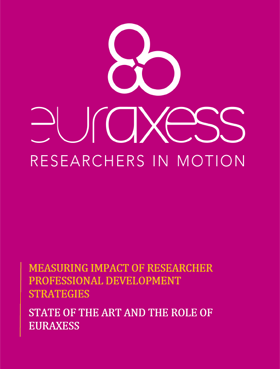FECYT analyzes researcher professional development policies across Europe
Policies supporting professional development within the field of research should guarantee the continuous development of knowledge, competencies and abilities of researchers in order to enhance their scientific performance and facilitate intersectoral, interdisciplinary and geographical mobility. In other words: researchers require of continuous and rich capacity building opportunities in horizontal skills in order to ensure their full professional development. At the same time, institutions and governments are in need of frameworks and strategies to facilitate their development, including measuring the impact of such actions.
For the last two years FECYT has participated in a European project that has analysed the current state if researcher professional development policies across Europe and beyond, including some frameworks and methodologies that can be used for impact measurement. In addition, FECYT has facilitated the dialogue between the different stakeholders involved to agree on a number of recommendations aimed at enhancing researcher professional development strategies in Europe. All this work has been especially focused on the initiative EURAXESS as a key figure to establish a coordinated strategy at European level.
These are the main results of our work:
Recommendations for fostering researcher career development in Europe
 These recommendations are aimed at the main stakeholders in researcher career development in Europe: European Commission, Member States, research funding and performing organizations, EURAXESS network and researchers themselves. They have been agreed by a large number of international experts on the topic.
These recommendations are aimed at the main stakeholders in researcher career development in Europe: European Commission, Member States, research funding and performing organizations, EURAXESS network and researchers themselves. They have been agreed by a large number of international experts on the topic.
Why is this report useful?
It gives a general view of the current ecosystem and can be useful for launching new work plans around researcher career development at national, institutional (including EURAXESS centres) and individual level. The report aims at inspiring and educating the different stakeholders about their roles and responsibilities in the professional development of research staff.
Publication date: February 2016
Good practices in researcher career development
 In this report we analyze the state of art of the researcher career and we identify a number of good practices from international organizations, European and third countries. Generally speaking, we could say that the strategies supporting researcher career development are still at an early stage, although some institutions have made significant advances.
In this report we analyze the state of art of the researcher career and we identify a number of good practices from international organizations, European and third countries. Generally speaking, we could say that the strategies supporting researcher career development are still at an early stage, although some institutions have made significant advances.
Why is this report useful?
It provides a general overview of the current state of policies in support of researcher career development around the world, and identifies different models which might be transposable to other institutions. This can be useful for institutions and other stakeholders currently developing their own strategies.
Publication date: August 2016
Measuring the impact of the researcher professional development strategies
 Measuring the impact of professional development strategies (in terms of enhancing scientific performance, intersectoral mobility, fundraising for research, professional positioning of research staff within the system, etc.) is a key issue for structuring and continuously improving these strategies. This report analyzes why it is important that the different stakeholders make the effort of measuring impact, and also describes some methodologies that can be used to develop impact measurement frameworks.
Measuring the impact of professional development strategies (in terms of enhancing scientific performance, intersectoral mobility, fundraising for research, professional positioning of research staff within the system, etc.) is a key issue for structuring and continuously improving these strategies. This report analyzes why it is important that the different stakeholders make the effort of measuring impact, and also describes some methodologies that can be used to develop impact measurement frameworks.
Why is this report useful?
It aims at educating the different stakeholders on the need to properly measure the impact of actions for improving researcher career development, and the role of each of them. It also includes two possible theoretical frameworks that can be used for designing the impact measurement plans.
Publication date: November 2016
This set of reports are published in the framework of PIPERS (Policy into Practice: EURAXESS Researcher Skills for Career Development), an international project financed by the European Commission through its 7th Framework Programme that has been coordinated by British Council.
Multimedia
Events
- No results available...
Events
- No results available...


